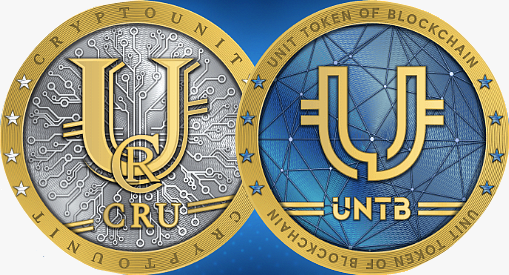Accredited InvestorsAltcoinAnatoli UnitskyAnti-Money Laundering (AML) In CryptoAPIArbitrageArtCoin TokenArticle DirectoryASICAuction Terminology GlossaryBasics of Stock Market InvestingBear MarketBest Crypto Payment Provider In the WorldBitcoinBlockchainBlockchain ConfirmationBlockchain Consensus MechanismBlockchain ForkBlockchain GlossaryBored Ape Yacht ClubBuild a Business That OutperformsBull MarketBuying SkyWay SharesByzantine Fault Tolerance (BFT) ExplainedCasascius CoinCentral Bank Digital Currency (CBDC)Centralized Crypto ExchangeCoinCoinsetCold WalletCollateralCommodity Futures Trading Commission (CFTC)Cross-Chain TechnologyCRUCrypto ExchangeCrypto GlossaryCrypto JokesCrypto Terms to KnowCrypto TickerCryptocurrencyCryptographyCryptojackingCryptounit BlockchainCryptounit GlossaryCryptounit ProgramdApp (Decentralized Application)Dead CoinDecentralized Exchange (DEX)Decentralized Finance (DeFi)Difference Between Bitcoin and EthereumDifferent Ways of Investing MoneyDigital CurrencyDistributed LedgerDo Your Own Research (DYOR)Dollar Cost Averaging (DCA)Dow Jones Industrial Average (DJIA)EncryptionERC-20ERC-721EthereumEvoScentFear Of Missing Out (FOMO)Fear, Uncertainty and Doubt (FUD)Fiat MoneyFNT Fintech CompanyGenesis BlockGlobal Unit PayGlossary of Banking TermsGlossary of Business TermsGlossary of Financial TermsHalvingHODLHot WalletHow Do I Start InvestingHow Rich is Satoshi Nakamoto?How to Create a BlockchainHow to Find Private InvestorsHow to Get Into FintechHow to Program Smart ContractsI Am Thrilled to Be a Part of This Global ProjectInitial Coin Offering (ICO)Initial Public Offering (IPO)Initial Token Offering (ITO)Innovation Basalt TechnologyInnovative Transportation TechnologiesInternational Bank Account Number (IBAN)Investing in Gold Mining StocksInvesting in Gold MiningJagerJoy of Missing Out (JOMO)Know Your Customer (KYC)LedgerLiquidity in CryptocurrencyMaker and Taker Fees in Crypto TradingMarket Capitalization (Market Cap)Meme CoinMetal Credit CardMetaMaskMillenials Now Have Access to Generational WealthMy Best Investment EverNew Digital EvolutionNFT GlossaryOff-Chain TransactionsOn-Chain TransactionsOpen Edition NFTPeer-to-Peer (P2P)Personal Loan GlossaryProbably the Best STO on the MarketProof of Stake (PoS)Real Estate Glossary of TermsReal Estate Investing GlossaryRebase TokenSecurities and Exchange Commission (SEC)Security Token ExchangesSecurity Token Offering (STO)Soulbound Decentralized Identities for Security TokensSoulbound ID Launch by Stobox Proves a SuccessSoulbound TokensStoboxStock Market GlossaryTestimonialsTether Platform and Token (USDT)UnitEx ExchangeUnitsky String TechnologiesUNTBUSDUValidatorWe Started Investing When We Were 25What are Blue Chip NFT?What are Blue Chip Stocks?What are Crypto Assets?What are Crypto Smart Contracts?What are CryptoPunks NFT?What are Digital Assets?What are Digital Collectibles?What are Gas Fees?What are Gas Wars?What are Hashmasks?What are Non Fungible Tokens?What are Non-Sufficient Funds (NSF)?What are Soulbound Tokens (SBT)?What are Stablecoins in Crypto?What are Transactions Per Second (TPS)?What are Utility NFTs?What are Utility Tokens?What Does Burning Crypto Mean?What Does Diamond Hands Mean?What Does Paper Hands Mean?What Does To The Moon Mean?What Does WAGMI Mean?What Happened to Satoshi Nakamoto?What is a 51% Attack?What is a Baby Boomer?What is a Backlink?What is a Banner?What is a Barcode?What is a Bid-Ask Spread in Crypto?What is a Block in Blockchain?What is a Block Reward?What is a Blockchain Address?What is a Blockchain Node?What is a Blockchain Oracle?What is a Blog?What is a Bond?What is a Bot?What is a Broker?What is a Business Accelerator?What is a Cash Cow?What is a Commercial Bank?What is a Commodity?What is a Con?What is a Credit?What is a Credit Limit?What is a Credit Rating?What is a Crypto Airdrop?What is a Crypto Bridge?What is a Crypto Scam?What is a Crypto Token?What is a Crypto Wallet?What is a Crypto Whale?What is a Crypto Winter?What is a Cryptocurrency Public Ledger?What is a Cryptocurrency Roadmap?What is a DAO?What is a Dark Pool?What is a Day Trader?What is a Dead Cat Bounce?What is a Default?What is a Derivative?What is a Digital Credit Card?What is a Fiscal Quarter?What is a Fungible Token?What is a Governance Token?What is a Grace Period?What is a Hard Fork?What is a Hot Wallet?What is a Hybrid Blockchain?What is a Hybrid PoW/PoS?What is a Joint Account?What is a Market Cap?What is a Merkle Tree in Blockchain?What is a Mining Farm?What is a Nonce? What is a PFP NFT?What is a POS System?What is a Prepaid Card?What is a Private Blockchain?What is a Private Key?What is a Public Blockchain?What is a Public Key?What is a Reserve Currency?What is a Ring Signature?What is a Routing Number?What is a Rug Pull in Crypto?What is a Safe Deposit Box?What is a Satoshi?What is a Security Token?What is a Seed Phrase?What is a Shitcoin?What is a Sidechain?What is a Soft Fork?What is a Spot Market?What is a State Bank?What is a SWIFT Code?What is a Tax Identification Number (TIN)?What is a Time Deposit?What is a Transaction Account?What is a Variable Interest Rate?What is a Virtual Assistant (VA)?What is a Virtual Card?What is a Virtual Currency?What is a Visa Card?What is a Whitelist in Crypto?What is a Whitepaper?What is Accounts Payable (AP)?What is AMA in Crypto?What is Amortization?What is an Accrual?What is an ACH Transfer?What is an Actuary?What is an Addendum?What is an Algorithm?What is an Angel Investor?What is an Annuity?What is an Asset?What is an ATM?What is an Atomic Swap?What is an Audit?What is an Avatar?What is an EIN?What is an Embargo?What is an Entrepreneur?What is an IDO (Initial Dex Offering)?What is an Interest Rate?What is an Internet cookie?What is an Investment Bank?What is an NFT Drop?What is an NFT Floor Price?What is an Ommer Block?What is an Orphan Block?What is an Outstanding Check?What is an Overdraft?What is Artificial Intelligence (AI)?What is B2B (Business-to-Business)?What is B2G (Business-to-Government)?What is Bartering?What is Bitcoin Dominance?What is Bitcoin Pizza Day?What is Blockchain Immutability?What is Blockchain Used For?What is BRICS?What is Business-to-Consumer (B2C)?What is C2C (Customer to Customer)?What is Capitalism?What is Catfishing?What is CFD Trading?What is Check Kiting?What is Cloud Mining?What is Communism?What is Content Marketing?What is Decentralization in Blockchain?What is DeFi in Crypto?What is Delisting?What is Depreciation?What is Digital Marketing?What is Diversification?What is Double Spending?What is Dumb Money?What is Dumping?What is Earnings Per Share (EPS)?What is Economics?What is Email Marketing?What is Equity?What is Etherscan?What is Fintech?What is Foreign currency?What is Forex?What is Fundamental Analysis (FA)?What is GameFi?What is Generative Art NFT?What is Gwei?What is Hard Currency?What is Hash Rate?What is Hashing in Blockchain?What is Inflation?What is Initial Game Offering (IGO)?What is Interest?What is Interest Income?What is Mainnet?What is Mastercard?What is Metaverse in Crypto?What is Mining in Cryptocurrency?What is Minting NFT?What is Mobile Banking?What is Money Laundering?What is NFT Alpha?What is NFT Metadata?What is NFT Rarity?What is NGMI Meaning?What is Nominal Interest Rate?What is Online Banking?What is Open-End Credit?What is OpenSea NFT Marketplace?What is Personal Identification Number (PIN)?What is Play-to-Earn?What is Polygon?What is Proof of Authority (PoA)?What is Proof of Work (PoW)?What is Public Key Cryptography?What is Pump and Dump?What is Quantum Computing?What is Refinancing?What is Retail Banking?What is Ripple?What is Sharding?What is Slippage in Crypto?What is Smart Money?What is Solvency?What is Soulbound ID?What is SSL?What is Staking in Cryptocurrency?What is Technical Analysis (TA)?What is Testnet?What is the Ask Price?What is the Better Business Bureau (BBB)?What is the Bid Price?What is the Dark Web?What is the InterPlanetary File System (IPFS)?What is the Gold Standard?What is the Lightning Network?What is the Prime Rate?What is the Sandbox?What is the Secondary Market?What is the World Bank?What is Tier 1 Capital?What is Tokenomics?What is TRC-20?What is Universal Banking?What is Unspent Transaction Output (UTXO)?What is Usury?What is Volatility in Crypto?What is Wash Trading?What is Web3?What is Whisper?What is XRP?What is Zero-Knowledge Proof (ZKP)?Who is Beeple?Who is Satoshi Nakamoto?Who is Vitalik Buterin?Why Tokenization is a Safe HavenWhy You Should Try Your Hand at Trading
Security Token Offering (STO)
- Home
- Cryptounit Glossary
- Security Token Offering (STO)
A security token offering (STO) is a public offering of tokenized digital securities.

STOs enable digital financing while complying with regulatory laws. Since security tokens are subject to strict rules, they are not traded on regular token exchanges. They are, however, comparable to ICOs in that they are fungible tokens, meaning they have monetary value.
After the ICO bubble burst in 2018, the STO was introduced. After the cryptocurrency market cap fell by more than $700 billion, regulatory agencies started pushing for more secure token laws. While some ICOs have resisted the transition from flexible utility tokens to securities, STOs have nonetheless been established as tokens that comply with securities laws and regulations.
Major banking institutions, such as JP Morgan, have already entered the blockchain space. More names will emerge as blockchain continues to play an increasingly important role in payment systems, including CBDCs (Central bank digital currencies) and stablecoins, as well as in the context of liquidity, via the tokenization of assets through security token offerings.
Security tokens are comparable to stock certificates, where ownership information is entered into the document as an official certificate of ownership. The key distinction is that the STO is held on the blockchain and represented by a token.
Types of Security Tokens
Stocks, bonds, options and futures can be tokenized and then used as a security token. The tokens thus obtained can be roughly divided into 3 forms:
- Asset-Backed Tokens - Asset-backed tokens are backed by physical assets such as gold, stocks, real estate, etc. These tokens use the blockchain to maintain a secure ledger of these assets, and retain their value as well as provide an accurate audit record of transactions, allowing them to serve as digital assets. An example of the asset-backed token is the WCRU security token.
- Equity Tokens - An IPO and an STO token are very similar in that they both represent company shares. Equity token holders have the same voting rights and the same share of profits as a company's shareholders.
- Debt Tokens - Debt tokens work similar to the short-term cash that investors provide to a company. As collateral for the loan, a ledger entry will be kept on the blockchain. The payment method and loan risk affect the price of the token.
Security tokens could be a viable alternative and competitor to stocks and other traditional assets in the near future.
Security Tokens vs Utility Tokens
Security tokens are distinct from other digital assets such as cryptocurrencies and utility tokens in that they must comply with regulatory requirements. Any investment in a Security Token must comply with applicable securities legislation. Security tokens are also typically backed by physical assets, providing investors with better liquidity, transparency, and security than other digital assets.
A security token differs from a utility token in that it is an investment contract that represents ownership of an underlying asset. A utility token, on the other hand, is meant to allow access to a specific service or platform. Security tokens typically grant holders a portion of earnings, voting rights, and dividends, while utility tokens provide access to services and products.
Security Token Offering vs Initial Public Offering (IPO)
Security token offerings are similar to IPOs and are sometimes seen as a mix between an ICO and an IPO. The primary distinction between a STO and an IPO is whether the investment is issued on the blockchain or in the traditional market.
An IPO is the process by which a private company initially offers a share to the general public. STOs and IPOs can both reflect an investment in a company, but STOs offer additional flexibility in representing assets other than company shares. An IPO provides you with a paper confirming ownership of your investment, whereas a STO provides you with a digital token recorded on the blockchain.
STOs are more adaptable than IPOs and, due to lower fees, can be significantly more cost-effective. An STO does not have to be totally tradable by the public, making it ideal for businesses wanting to recruit investors for specific projects.
Benefits of Security Token Offering
STOs were designed to be a secure form of ICO adhering to all rules and regulations. STOs give token holders shareholder-like privileges, such as a vote in the company or dividends, while ICOs, for example, don't give token holders as many rights.
Using an STO instead of an IPO can offer more freedom to companies wishing to offer shares without being bound by local legislation or traditional guidelines. STOs are also easier for modern investors to obtain, easier to sell, and overall more conducive to a free market environment.
STOs are the next stage in the evolution of fungible digital tokens. Security tokens outperform both ICOs and IPOs by offering the flexibility of blockchain technology while complying with relevant regulations and relying on proven methods to reduce risk.
Disadvantages of a Security Token Offering
One of the main advantages of STOs is also one of its main challenges: regulation. STOs are subject to stringent regulation and compliance, which slows down the security token process. Platforms issuing STOs must always be up-to-date on new and existing Anti-money Laundering, Know Your Customer and other regulations.
Investor restrictions in some countries also limit who can engage in STOs. This reduces the investor pool for the STO and the opportunities available to potential investors. STOs can also be costly due to the administrative checks required before the security token is issued.
Related Articles

Initial Coin Offering (ICO)
The Initial Coin Offering (ICO) is an innovative method of raising capital through the use of cryptocurrencies. Such a model is more common in cryptocurrency initiatives that...

WCRU Security Token
WCRU (World Cryptounit) security tokens are digital shares of the Global Investment Portfolio CryptoUnit, which are issued via the STO (Security Token Offering) procedure, use blockchain technology and smart contracts...

Initial Public Offering
Initial Public Offering (IPO) refers to the first time a private firm offers its shares to the general public. In some cases, the word "going public" may also apply...

What are Utility Tokens?
Utility tokens, also known as utility coins or app coins, are a type of digital asset that grants holders access to a specific product or service.
- Home
- Cryptounit Glossary
- Security Token Offering (STO)